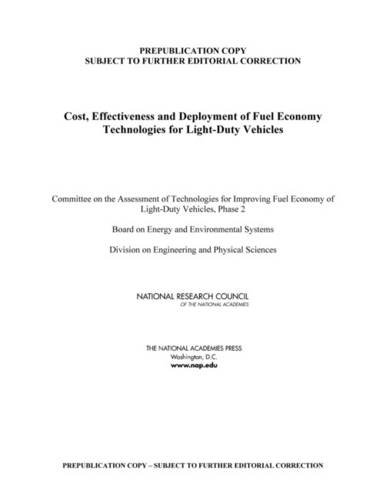

Most ebook files are in PDF format, so you can easily read them using various software such as Foxit Reader or directly on the Google Chrome browser.
Some ebook files are released by publishers in other formats such as .awz, .mobi, .epub, .fb2, etc. You may need to install specific software to read these formats on mobile/PC, such as Calibre.
Please read the tutorial at this link: https://ebookbell.com/faq
We offer FREE conversion to the popular formats you request; however, this may take some time. Therefore, right after payment, please email us, and we will try to provide the service as quickly as possible.
For some exceptional file formats or broken links (if any), please refrain from opening any disputes. Instead, email us first, and we will try to assist within a maximum of 6 hours.
EbookBell Team

5.0
88 reviewsThe light-duty vehicle fleet is expected to undergo substantial technological changes over the next several decades. New powertrain designs, alternative fuels, advanced materials and significant changes to the vehicle body are being driven by increasingly stringent fuel economy and greenhouse gas emission standards. By the end of the next decade, cars and light-duty trucks will be more fuel efficient, weigh less, emit less air pollutants, have more safety features, and will be more expensive to purchase relative to current vehicles. Though the gasoline-powered spark ignition engine will continue to be the dominant powertrain configuration even through 2030, such vehicles will be equipped with advanced technologies, materials, electronics and controls, and aerodynamics. And by 2030, the deployment of alternative methods to propel and fuel vehicles and alternative modes of transportation, including autonomous vehicles, will be well underway. What are these new technologies - how will they work, and will some technologies be more effective than others?
Written to inform The United States Department of Transportation's National Highway Traffic Safety Administration (NHTSA) and Environmental Protection Agency (EPA) Corporate Average Fuel Economy (CAFE) and greenhouse gas (GHG) emission standards, this new report from the National Research Council is a technical evaluation of costs, benefits, and implementation issues of fuel reduction technologies for next-generation light-duty vehicles. Cost, Effectiveness, and Deployment of Fuel Economy Technologies for Light-Duty Vehicles estimates the cost, potential efficiency improvements, and barriers to commercial deployment of technologies that might be employed from 2020 to 2030. This report describes these promising technologies and makes recommendations for their inclusion on the list of technologies applicable for the 2017-2025 CAFE standards.